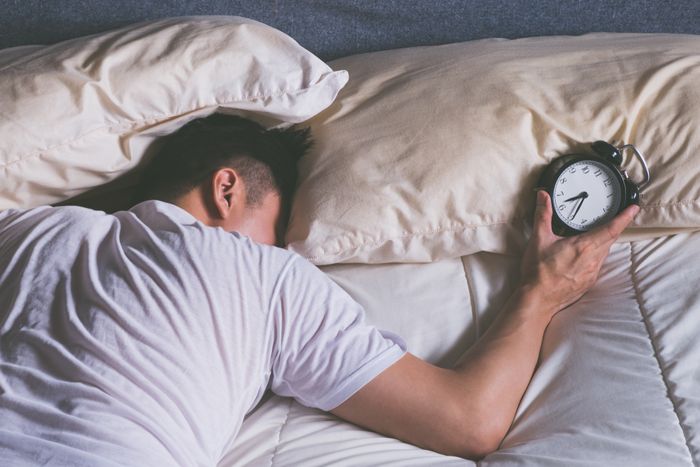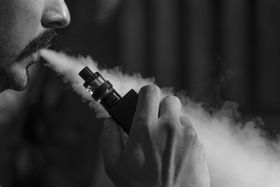From Restless to Restful: Effective Parasomnia Therapies
Published May 9, 2023.

Parasomnias are disruptive sleep disorders that include unusual physical events that interrupt sleep or occur while transitioning in or out of sleep.
In addition to preventing healthy rest by disrupting sleep, parasomnias can be dangerous to the person experiencing them and the people around them. For example, sleepwalking has led to people being badly injured and even killed (1). For this reason, it's important to find effective parasomnia treatments and avoid any adverse effects.
What Are the Symptoms of Parasomnia?
Parasomnias can be either REM-related or non-REM related.
- REM parasomnias: These occur during the REM or dream sleep phase. Such parasomnias include intense nightmares, violent behaviours as a response to bad dreams, and recurrent isolated sleep paralysis.
- Non-REM parasomnias: Characterized by physical and verbal components, non-REM parasomnias usually include conditions like sleepwalking, talking in your sleep, or sleep-related eating disorders.
Although each disorder has unique symptoms, all parasomnias share some common elements, like having difficulty sleeping through the night and experiencing daytime fatigue.
» Not sure if you're sleep deprived? Here are the signs and solutions
5 Parasomnia Treatments That Work
1. Maintaining Good Sleep Hygiene
Practicing good sleep hygiene means developing habits that promote restful sleep. This can include having a regular sleep schedule and making your environment conducive to sleep by eliminating noise, adjusting your lights, and increasing physical comfort.
Good sleep hygiene can be an effective parasomnia treatment because it can ensure no other sleep-disrupting issues contribute to your parasomnia (2).
» Learn more: Strategies to increase deep sleep
2. Behavioural Therapy
Behavioral therapy involves targeting maladaptive responses (unhealthy coping strategies like drugs and alcohol) and substituting adaptive responses (like meditation techniques and other healthy sleep habits)i. This therapy has been shown as particularly effective for treating non-REM parasomnias, and it uses a combination of approaches like scheduled awakenings, mindfulness-based stress reduction and relaxation, and other cognitive-behavioural sleep treatment strategies (3)(4).
3. Lifestyle Changes
One way to reduce the impact of parasomnias is to reduce any factors that can lead to other sleep issues. In addition to instituting sleep hygiene, altering other lifestyle factors can help. For example, avoiding alcohol can help reduce parasomnias because alcohol causes sleep disturbance. Similarly, avoiding caffeine except first thing in the morning is also really useful, as caffeine is a known sleep disruptor.
If you're taking any medication, make sure to adhere to recommended dosages. Also, remember that sleep medications are only a short-term solution, and taking them over a longer period of time than prescribed can further aggravate your condition.
4. CPAP Treatment
Parasomnias appear to be more common in people with sleep apnea, particularly disorders like sleep hallucinations and night terrors (5). In such cases, a CPAP (continuous positive airway pressure) therapy can help decrease the effects of parasomnias.
This treatment involves a machine that applies mild air pressure to keep your airways open while you sleep so that you breathe continuously throughout the night. Steady breathing can improve sleep quality, reducing the symptoms of parasomnias.
5. Undergoing Hypnosis
Hypnosis involves being put into an altered state of relaxation, which is known as hypnotic trance. This state makes a person more susceptible to suggestion, which is why it can be used to treat various disorders when conducted by a professionally trained therapist. However, you can also learn self-hypnosis and focus yourself into this observant relaxed state.
Hypnosis has been demonstrated to work well with parasomnias, particularly when it's professional hypnotherapy (6). Most positive outcomes have been linked with sleepwalking and sleep terrors, but hypnosis is also effective with sleep-related eating disorders, sexsomnia, and vocal sleep disorders like sleep-talking.
» Discover the difference between light and deep sleep
Sleep Soundly With Effective Parasomnia Treatments
Parasomnias can cause chronic sleep deprivation, which can negatively impact your physical and mental health. However, effective parasomnia treatments not only ensure that you'll be well rested but also decrease the likelihood of injury to yourself and others while experiencing parasomnia.
To get the best results from your treatment, it needs to be tailored to your individual needs. So, make sure to consult a professional and find out the best course of action for your specific condition.
» Need help figuring out your perfect wellness routine? Let our quiz help








